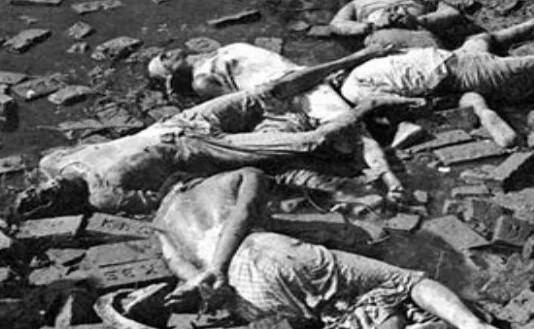The story of the 1971 Bangladesh War of Independence is a testament to the country’s indomitable spirit in the fight for freedom. The war, which lasted nine months, was a turning point in the region’s history and ultimately led to the creation of the independent state of Bangladesh. This article delves into the details of this historical event, examining the main factors that led to the war, the course of the conflict, and its lasting impact on Bangladesh and the world.
After the military invasion on March 25, 1971, the last attempt to resolve the conflict between the two regions of Pakistan failed. After the massacre that began that night, Sheikh Mujibur Rahman formally announced Bangladesh’s independence in a radio address early on March 26. The Bangladesh War of Independence was a revolutionary and armed struggle that took place in East Pakistan against the then-West Pakistan in 1971. This people’s war was triggered by the rise of Bengali nationalism, the independence movement in East Pakistan, and the Bengal Genocide.
Background and causes
The seeds of the Bangladesh Liberation War were sown with the partition of India in 1947. The Muslim-majority region of Bengal was originally part of Pakistan, along with several other regions in present-day India. However, cultural, linguistic, and economic differences between East and West Pakistan created tensions and led to widespread discontent among the people of East Pakistan.
Language Movement
One of the key pre-war events was the 1952 Language Movement. During this period, the people of East Pakistan fought for recognition of their mother tongue, Bengali. This movement gained momentum and eventually led to Bengali being established as one of Pakistan’s official languages. However, this recognition did little to address the fundamental problems of the people of East Pakistan.
Economic And Political Repression
Economic and political differences between East and West Pakistan continued to widen, and West Pakistan’s central government ignored developments in the eastern region. The people of East Pakistan felt marginalized and discriminated against, which led to increased demands for autonomy and autonomy.
Awami League and Sheikh Mujibur Rahman
In the political landscape, the Awami League emerged under the leadership of Sheikh Mujibur Rahman. The party campaigned for greater autonomy for East Pakistan and quickly gained popularity among the masses. His 1970 parliamentary elections, which the Awami League won, further strengthened the demand for self-determination.
The Liberation War Unfolds
The liberation struggle gained momentum in March 1971 when the Pakistani military government refused to recognize the Awami League’s electoral victory and brutally suppressed the group in East Pakistan. This was the beginning of armed resistance and the formal declaration of independence by Sheikh Mujibur Rahman, fondly remembered in Bangladesh as the Father of the Nation.
Birth of Mukti Vahini
The Mukti Bahini, a liberation army, was created to counter the oppression of the Pakistani military. The Mukti Bahini, a group of guerrilla fighters, played an important role in the war by carrying out guerrilla attacks and sabotage operations and providing vital intelligence to allied forces. massacre and brutality The Pakistani military’s response to the Bengal rebellion was characterized by widespread violence, repression, and ethnic cleansing.
Massacre and Atrocities
The infamous Operation Searchlight massacred countless innocent civilians and left thousands of women victims of rape and other forms of sexual violence. These atrocities sparked international support for Bangladesh’s independence.
Indian Intervention
Indian intervention As the conflict escalated, Bangladesh’s neighbor India also became directly involved in the war. The Indian army began a full-scale military operation in December 1971, which resulted in the immediate defeat of the Pakistani army. Within weeks, the war was over and Bangladesh was born as an independent nation.
Legacy and Impact
Legacy and influence The Bangladesh Liberation War left an indelible mark on the country and the world and shaped the course of South Asia’s history. It was a triumph of the human spirit and the relentless pursuit of freedom. The war claimed millions of lives, estimated between 300,000 and 3 million, but also paved the way for the creation of an independent Bangladesh.
Rebuilding a Nation
rebuild the nation After the war, Bangladesh faced the difficult task of rebuilding the country from scratch. The war has left the country in ruins, its infrastructure in ruins, and its economy in chaos. However, thanks to resilience, determination, and widespread international support, Bangladesh gradually recovered and began its development path.
International Recognition
International recognition The international community played an important role in supporting Bangladesh’s independence struggle. Immediately after liberation, several countries recognized Bangladesh as a sovereign state, further legitimizing Bangladesh’s position on the world stage. Bangladesh’s independence influenced other countries’ striving for self-determination and freedom. memory and reflection To this day, Bangladesh commemorates the victims of the war through various commemorative events and monuments.
Remembrance and Reflection
The war remains an important part of the nation’s common memory and continues to shape its identity and aspirations. The courage and resilience shown by the people of Bangladesh during the war continue to remind us of the power of unity and the pursuit of justice. diploma The 1971 War of Independence is a testament to the unwavering spirit and determination of the Bangladeshi people in their quest for freedom. The war caused untold suffering and loss but ultimately led to the creation of an independent nation. The legacy of the war reminds us of the importance of protecting and preserving the hard-won independence that Bangladesh enjoys today. Our language movement was not to establish Bengali as the national language. Our language movement should establish our political and economic rights. ” – Sheikh Mujibur Rahman
external link: [United Nations Educational, Scientific and Cultural Organization (UNESCO) – Bangladesh Liberation War]
(https://ich.unesco.org/en/RL/generation-songs-of-the-war-of-liberation -Bangladesh-01536)











